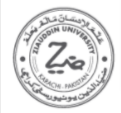[vc_row][vc_column][vc_column_text]
Speaking at a webinar organized by the Ziauddin University on Tuesday, Pakistan Institute of International Affairs chairperson Dr Masuma Hasan called for demilitarisation in the Indian-held Kashmir as the presence of military in the region was detrimental to peace in the region. The webinar was titled ‘Kashmir – Divided Yet United’.
According to a statement issued, the speaker endorsed the proposal of former president Pervez Musharraf that he had presented in Agra. She said the presence of Indian military in Kashmir was very overwhelming and it was a concern for all those who wanted peace and respect for human rights.
Talking about the Dogra regime and the Hindu-Muslim riots at the time of independence, she said the Dogra regime was known for its high-handedness and religious discrimination. She added that there were riots in many parts of the Sub-continent in which sometimes Hindus suffered and sometimes Muslims.
After the British left the Sub-continent, there has been crystallization for the demand of Pakistan by the Kashmiris, she said. “As far as Quaid-e-Azam’s ideology is concerned, it was a holistic approach. Both India and Pakistan’s resolutions stressed and had agreed to the point that they would leave Kashmir fair and free and let Kashmiri people decide their future themselves without any pressure. So, India and Pakistan should remember this and give them an open option to join them or to live independently. People from both parts of Kashmir deserve to live freely, to move freely, to attend each other’s events, to be a part of each other’s happiness,” Dr Masuma asserted.
Speaking on the lamentable situation of human rights in the occupied region, Muhammad Oves Anwar of the Research Society of International Law said, “For the last 20 years, India has been successful in labelling the Kashmir’s freedom struggle as a terrorist organisation which is clearly against the international laws.”
He added that history would always tell how after August 5, 2019, even the basic human rights were taken away from the people of the Indian-held Kashmir. “When you lose any internal self-determination the only option than you have is external self-determination and exercising those rights. Due to India’s viciousness, the Kashmiris have lost their internal self-determination. Now there is only external self-determination available for Kashmir under the UN Security Council’s prescribed methods,” he said.
Answering a question, Muzdalfa Ahmed, a Kashmiri youth activist, said there were over 500 organisations solely working for Kashmir and putting forward their struggle, engaging the Kashmiri youth for this cause, and running campaigns against the human rights violations in Kashmir.
[/vc_column_text][/vc_column][/vc_row]

